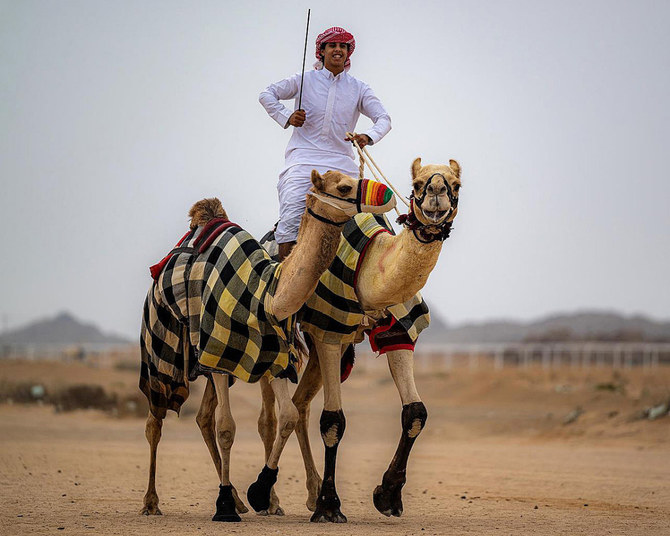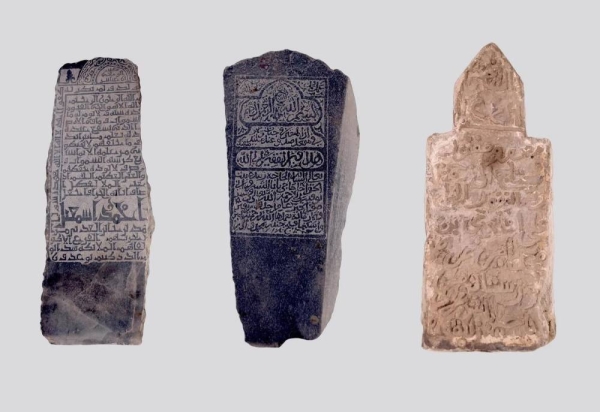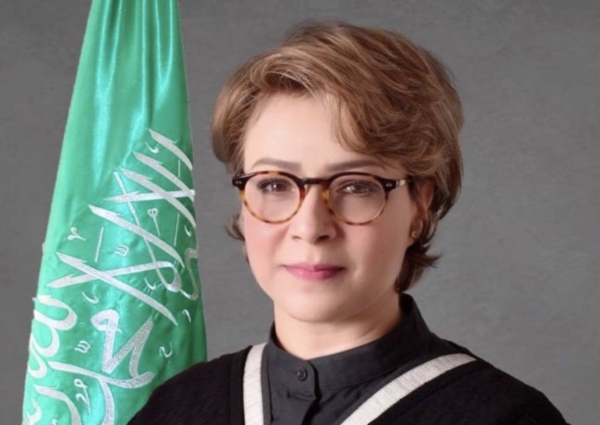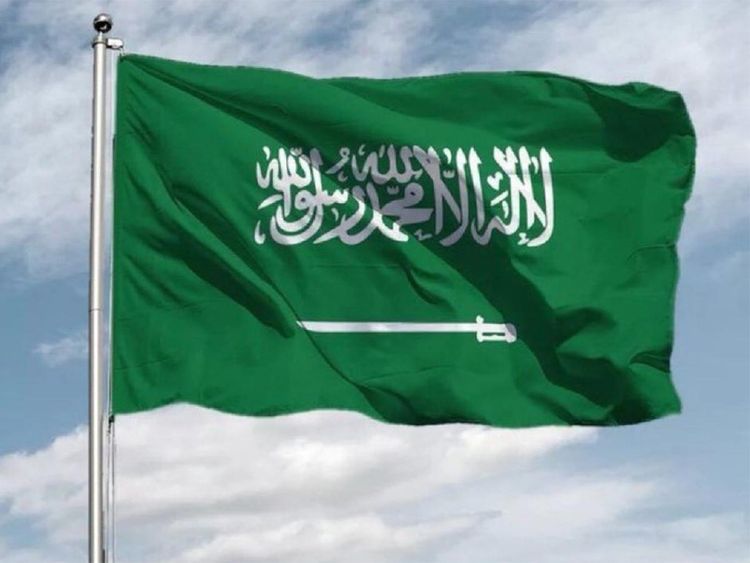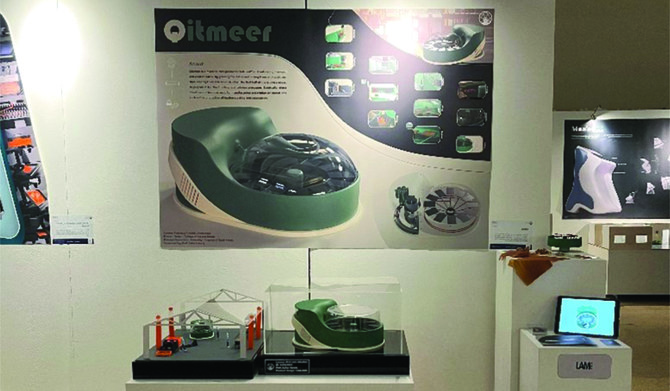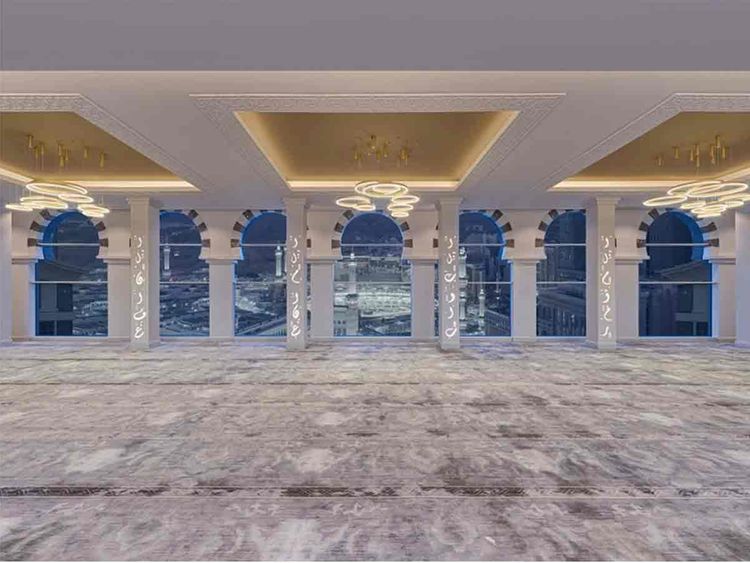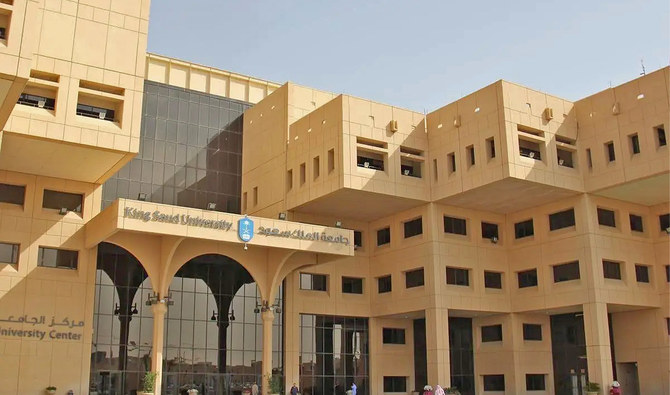Sustainable desalination technology in Saudi Arabia has achieved global recognition, with the Kingdom’s Saline Water Conversion Corp. receiving nine Guinness World Records.
In a ceremony at the Ministry of Environment, Water, and Agriculture headquarters in Riyadh, the company was awarded a certificate for its multi-effect distillation water desalination plant. This facility, with a daily capacity of 92,000 cubic m., is recognized as the largest in the world.
In December 2021, the organization unveiled its roadmap for achieving environmental sustainability at a major international industry conference. By being awarded the record for the lowest energy consumption for a water desalination plant globally, SWCC has taken a significant step toward fulfilling its Saudi Green Initiative action plans.
Saudi Arabia, considered one of the most water-stressed countries globally, is implementing various measures to ensure water security, a foundational element for the socioeconomic transformation outlined in the Vision 2030 plan.
The actions include reducing water demand through optimizing agricultural production and increasing water supplies via expanded desalination and storage capacity. Additionally, water system resilience will be enhanced through the implementation of transmission and interlinkage projects, as outlined in a report by the nation’s desalination company.
During the ceremony, the company was recognized for achieving a record for the largest water storage facility, the Riyadh Strategic Water Reservoir, with a capacity of 4.79 million cubic m.
It also received acknowledgment for having the largest drinking water storage tank network, totaling a capacity of 8.79 million cubic m..
Speaking on the sidelines of the event, SWCC Gov. Abdullah Al-Abdulkarim, said: “The corporation is proud to have achieved these new records that enhance its pioneering and leadership role in the desalination industry and to continue its race with the future with deliberate and confident steps.”
He further outlined that achieving nine new Saudi records in the Guinness resulted from continuous development, research, and innovation efforts. This success reflects a strategy emphasizing increased business efficiency through technology harnessing, capability empowerment, and knowledge localization.
“Our vision expands today in the desalination industry, so that our ambitions exceed the horizons of competing for record achievements to making a change, making a difference, and exporting Saudi leadership to the world,” added Al-Abdulkarim.
source/content: arabnews.com (headline edited)
____________
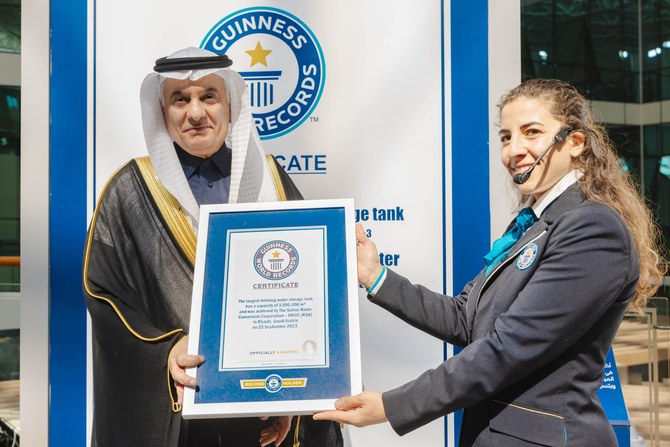
A ceremony to mark the records was held at the Ministry of Environment, Water, and Agriculture headquarters in Riyadh. Supplied
_________________
SAUDI ARABIA
